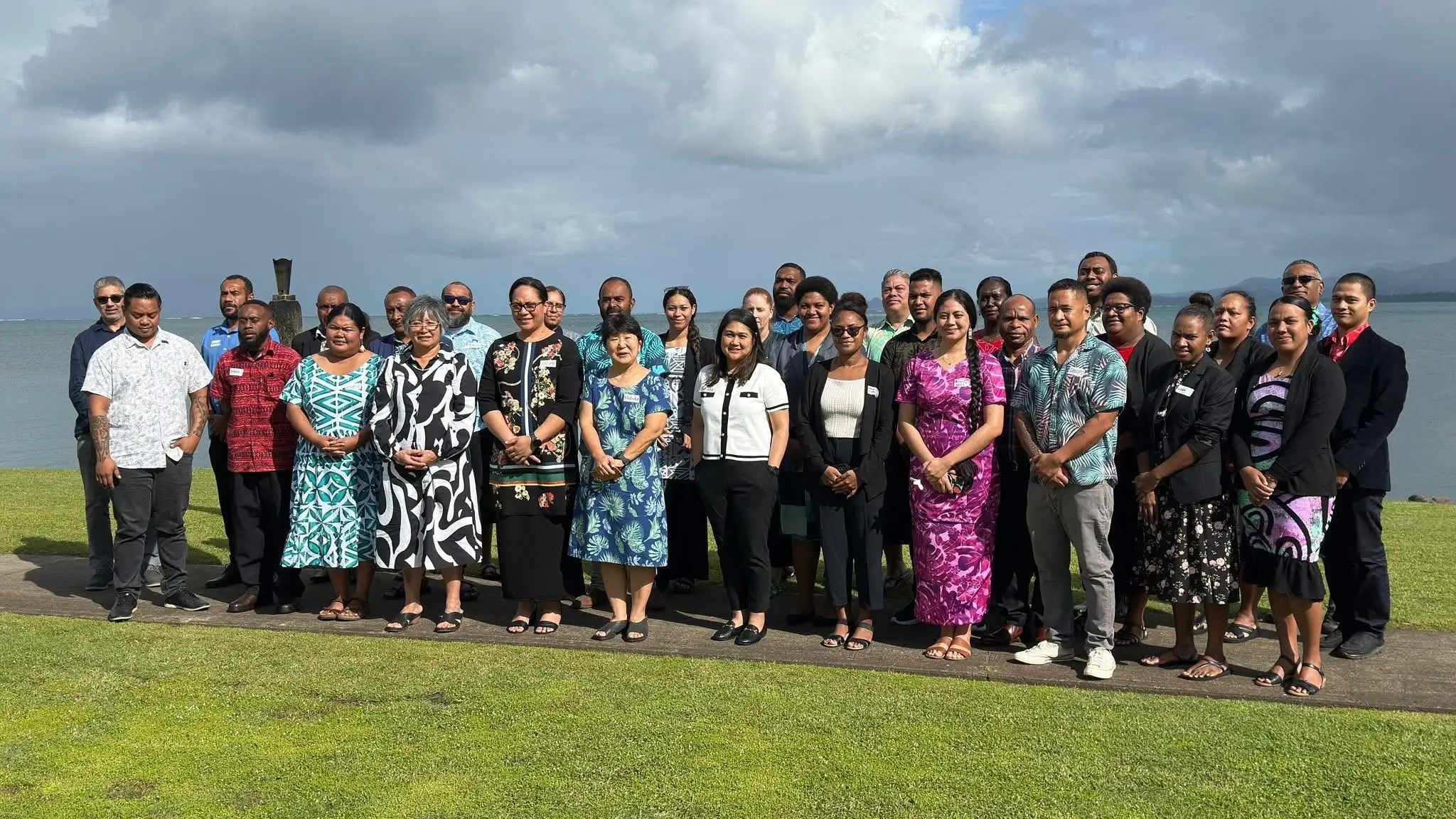
Over 30 regional experts and government representatives from 11 Pacific Island nations gathered in Suva for a two-day workshop aimed at strengthening regional capacity to quantify and integrate the value of ecosystem services into national planning and policy.
Held from June 19–20, the workshop brought together delegates from Fiji, Kiribati, the Marshall Islands, Nauru, Palau, Papua New Guinea, Samoa, Solomon Islands, Tuvalu, Vanuatu, and Indonesia. The event was hosted with support from the United Nations Economic and Social Commission for Asia and the Pacific (UN-ESCAP), the Government of Indonesia, the Pacific Islands Forum Secretariat (PIFS), GIZ, and SPREP.
With the Pacific increasingly vulnerable to climate and economic shocks, participants emphasized the need to assess both the tangible and intangible benefits of ecosystems like mangroves and seagrass meadows; critical for coastal protection, biodiversity, and food security.
“Knowing the value of our ecosystems is critical for informed decision-making, but remains a daunting challenge due to limited capacity in the Pacific,” said Andie Fong Toy, Head of the ESCAP Subregional Office for the Pacific. “We must now prioritize where ecosystem valuation is most effective for shaping policy.”
The workshop featured case studies across the Pacific, such as the use of tourism levies to fund marine protected areas. Experts from Indonesia also shared their experience in seagrass valuation, including how such assessments have informed minimum compensation for ecosystem degradation and driven policy reform at various levels.
Speaking on behalf of the Indonesian Ambassador to Fiji, Nauru, Kiribati, and Tuvalu, a senior official reiterated the importance of cross-border collaboration. “The environment knows no ethnic or cultural boundaries. The wider Pacific, including Indonesia, benefits from effective measurement of ecosystem services,” he said.
Funded entirely by the Indonesian Government through ESCAP, the initiative included capacity development, travel support, and technical assessments. It aligns with broader Pacific priorities, including the 2050 Strategy for the Blue Pacific Continent and the Pacific Roadmap for Economic Development.
As pressures on natural resources grow, ecosystem valuation is being recognized as a vital tool in building climate resilience, improving land and marine governance, and supporting the sustainable economic futures of Pacific Island nations.